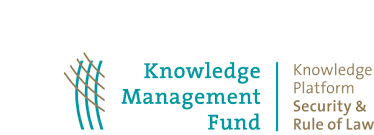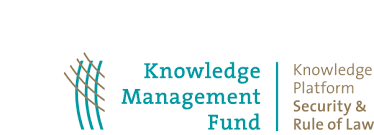This blog was written by Yolande Bouka and is part of RVI’s Research Collaboration project in partnership with the Groupe d’Etudes sur les Conflits et la Sécurité Humaine (GEC-SH) and funded by the Knowledge Management Fund of KPSRL. The project examines the political economy of knowledge production and its impact on the security of researchers in conflict-affected settings, and in turn, the quality of the research that is produced. Specifically, the project focuses on the experiences of Congolese researchers working on collaborative Global North-South projects and aims to contribute to the conversation on research ethics, collaboration and decolonizing knowledge. Interviews and focus group discussions were conducted by the GEC-SH team in March and April 2019. The project takes the position that all forms of research whereby a researcher or institution relies on another researcher or institution for access, data collection and analysis, translation, transcription, writing, or other form of knowledge production or sharing can be considered collaborative. As such, the project examines various forms of collaborative research, whether short-term consultancies or long-term partnerships, in an effort to combat extractive forms of research.
By Yolande Bouka
In North America, The Tuskegee Study of Untreated Syphilis in the Negro Male (1932-1972) is often cited as the critical juncture that led to the development of norms and practices of informed consent in medical and social sciences research through Institutional Review Boards (IRB). Seldom mentioned, however, is that after medical abuses and experiments conducted by the Nazis during World War II were exposed, the Nuremberg Code (1947) and the World Health Organization’s Declaration of Helsinki (1964) both offered, years before the response to Tuskegee, a set of directives of informed consent when conducting research with human subjects.
Nazi medical experiments did not occur in a vacuum. Before the Holocaust, German colonial doctors conducted cruel medical experiments on Herero prisoners in South West Africa (present-day Namibia). It was not until similar experiments were conducted on Jews and other marginalized groups on European soil in the 1940s that a scientific consensus emerged around norms of consent for all. But in North America, it took longer for the standards to stick. With no shortage of black and brown bodies within arms reach, Canadian scientists continued to experiment on Indigenous children, and in the United States, soldiers, prisoners, and blacks, among others, were victimized. Indeed, the Tuskegee scandal was not an isolated case. It rode on the legacy of colonial, imperial, and slave history of medical and social experiments on vulnerable and racialized populations.
While the legacy of Tuskegee and the ensuing research ethics committee have since made significant strides towards the protection of research participants—though some scholars[1] have argued that it is insufficient—in most fields, they have done very little to institutionalize protections for other types of people involved with such research projects. For example, a research participant can technically have legal recourse and approach my university should I violate informed consent as a researcher. However, the relationship between informants, research assistants and collaborators is not similarly regulated.
The power imbalance between such actors and lead researchers is even more salient when, like in the field of peace and conflict studies, micro and meso level research—focused on groups or communities—involves scholars from Western institutions traveling to conflict-affected societies in the Global South. More often than not, researchers from the Global South are brought in late into the research conceptualization process, leaving them out of the important research design, research protocol and financial decision-making stages. The power asymmetry combined with violent or unstable research contexts and the professional incentives for research innovations can create conditions that facilitate exploitative work relations.
Over the years, many scholars across various disciplines, mostly in anthropology and feminist studies, have taken a broader lens from which to analyze ethics and power relations in field research. Recent literature addresses the complexity of field relationships, particularly in highly politicized and dangerous settings. It offers insights into the challenges that informants and collaborators based in the Global South face in such settings during and after field research. Scholars have highlighted the imperative of acknowledging that ethical obligations to respondents transcend the temporality and locality of the field research. I have previously written about how the failure to acknowledge the intellectual property of scholars in the Global South amounts to intellectual theft and constitutes a form of structural violence. In turn, some academics have also offered various ways to improve collaborative research between scholars based in the Global North and the Global South.
Despite these conversations, the capitalist model of higher education—anchored in the values of profit-making and exploitation—continues to push issues of equity, care and inclusivity to the margins. First, the modern university promotes the protection of privilege and exclusion. While many universities in the Global North have developed initiatives around inclusive excellence, they struggle to diversify their staff and students. Moreover, as mentioned above, even in the noble pursuit of knowledge, what many universities teach remains moored in Eurocentric, and often racist, and colonial systems of knowledge that pathologize the Other. This, in turn, has implications for how students and scholars understand the world, their place in it, and their relationship with what we call the field.
Second, the constant push for the fast production of path-breaking ideas and the idealization of solo authorship for the purpose of access to jobs and promotion impacts how we train students and the academic pursuits we value. Researchers are not always adequately prepared before engaging in difficult field research and may be encouraged to publish alone even if their findings are the result of collaborative intellectual labor. Consequently, the structural hierarchies that minimize and sometimes erase the intellectual contributions of junior and/or underrepresented scholars can create additional vulnerabilities for researchers based in conflict-affected settings when working with scholars and institutions based in the West.
Doing research in conflict-affected settings can be dangerous. Consequently, many Western universities have strict protocols and insurance guidelines about how to assess and avoid risks when the research is conducted internationally, i.e., what type of vehicle to travel in and where not to go. Conversely, research assistants and collaborators based in those regions are rarely protected by the insurance policies. Depending on the context, researchers there are often exposed to varying degrees of risk when conducting the research. The very networks they have and leverage for these projects can be challenging to navigate when resource-rich Western researchers are in the picture.
When issues of gender, race or citizenship make traveling or conducting specific types of research in some regions, accompanied by a Western researcher, more dangerous, so-called local researchers may be sent to the field alone. Or after preliminary fieldwork is done and Western researchers return to their teaching obligations, local researchers may be tasked with gathering the remainder of data on their own. When these researchers are excluded from the development of research and security protocols it can lead to failures to accurately assess risks. Unfortunately, the precarity of many researchers in the Global South often leads them not to push back when faced with requests they believe can be dangerous. Instead, they navigate risks as best they can, making use of their social capital and personal resources.
It is the intersection of this precarity and the agency of conflict researchers based in the Global South that prompted the Rift Valley Institute (RVI) to interrogate how the lopsided distribution of risk in collaborative research in conflict-affected settings impacts the data we gather and therefore the quality of the analysis and understanding of conflict dynamics. Recently, we coordinated a small research project led by Bukavu-based Director of the Groupe d’Etudes sur les Conflits et la Sécurité Humaine (GEC-SH), Prof. Godefroid Muzalia. He and his team conducted a series of interviews and focus group discussions with researchers in the eastern Congo to explore the conditions under which Congolese researchers carry out conflict and security research. This project, funded by the Knowledge Management Fund of KPSRL, aims to address the gap in knowledge regarding the inequalities in the political economy of knowledge production, the subsequent risks experienced by researchers from the Global South, and the impact on the quality of research that is produced.
Over the next few weeks, we will publish a series of blogs by the GEC-SH researchers, offering preliminary analysis and candid reflections on what it is like for Congolese to work as researchers in the DRC. They will touch on issues such as data ownership and intellectual property, the dangers of working in this field of inquiry, power asymmetry and decision-making, and fair compensation. In June, a seminar will be held in Nairobi where the members of the research team will present their findings. The conference will also be an opportunity for researchers from Ethiopia, Somalia and South Sudan—where RVI has on-going collaborative research projects—research organizations, academics, policy-makers, and NGOs to examine current collaborative research practices and lay the groundwork for improving research practices in conflict-affected settings. Following the conference, an empirical paper will be produced on the research findings.
The project will open an investigative window into and offer a platform to elevate the lives, challenges, and opportunities of Congolese researchers. For a while now, researchers based in the Global North have written about the ethical difficulties of conducting research in conflict settings. While genuinely reflexive, many of these discussions have often done more for the careers of the authors than their collaborators, informants and research assistants. The project hopes to offer a raw picture of the impact of conflict research and its demands on those who live and work in the dynamics we investigate.
The field of social sciences has mastered the art of disciplining and colonizing minds. When it comes to how scholars should engage in collaborative research, there is unlikely to be a ‘Tuskegee moment’ that will compel academic and research institutions to take asymmetrical collaborative research relations seriously. However, these blogs, and the subsequent publication, are an opportunity for scholars to improve how we cultivate knowledge.[2] While the aim is that this will prompt researchers to reevaluate their engagement with their informants, research assistants and collaborators, it should also compel scholars based in the Global North to push back against institutional norms and practices in universities that facilitate abuse and exploitation.
Notes
[1] Hemming, Judy. 2009. “Exceeding Scholarly Responsibility: IRBS and Political Constraints.” In Surviving Field Research: Working in Violent and Difficult Situations, ed. King, John C., Sriram, Chandra Lekha, Mertus, Julie A., Martin-Ortega, Olga, and Herman, Johanna. London: Routledge.
[2] I want to thank Dr. Ajay Parasram (Dalhousie University) for reminding me of Robbie Shilliam’s problematization of knowledge hierarchies.




